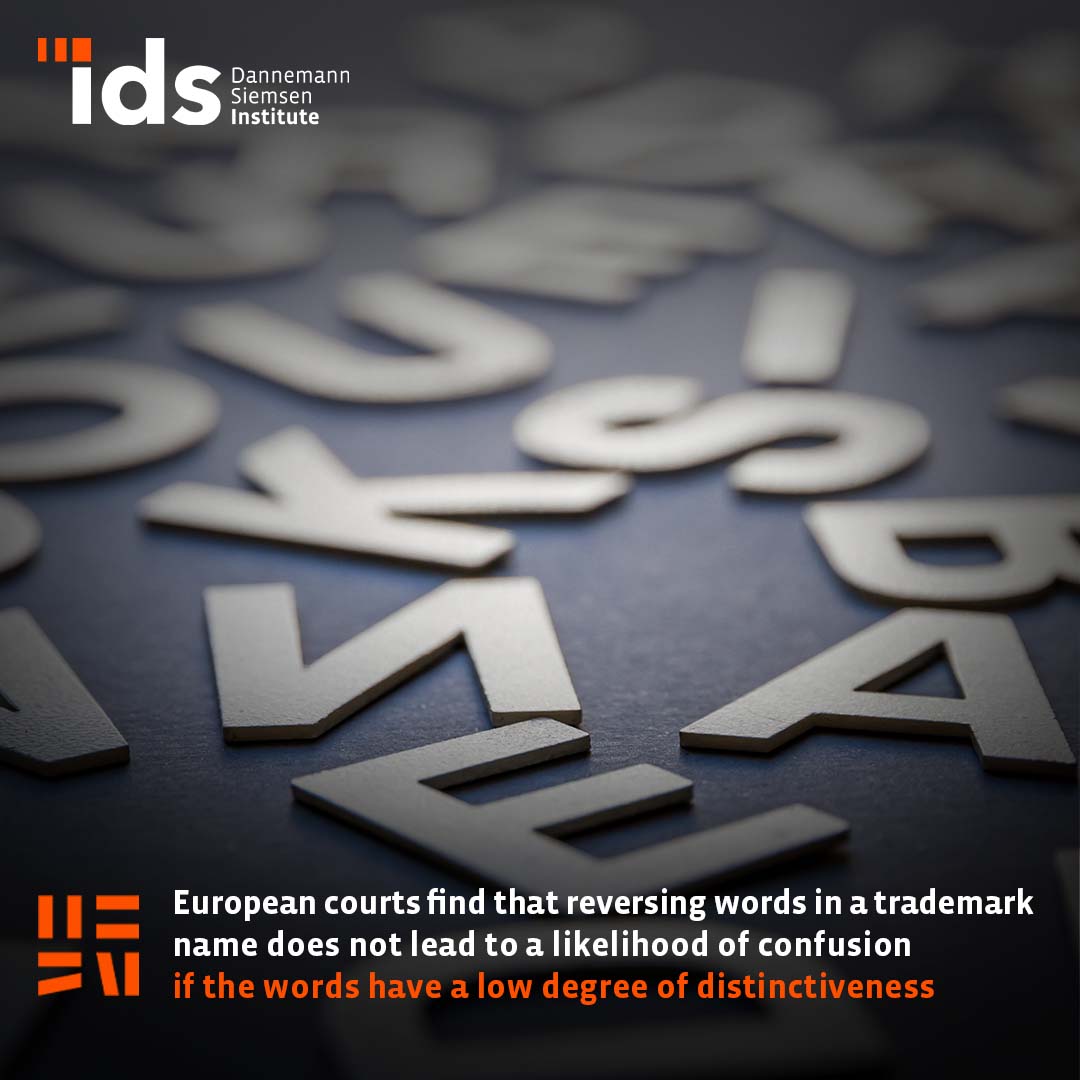02 de maio de 2024
Share
European courts find that reversing words in a trademark name does not lead to a likelihood of confusion if the words have a low degree of distinctiveness
In two recent decisions, both the Third Chamber of the General Court and the Second Board of Appeals of the European Union Intellectual Property Office (EUIPO) have ruled that, in the field of trade marks, the inversion of words in the name, i.e. when one mark consists of two words and another mark consists of the same two words in an inverted order, does not lead to a likelihood of confusion when both words have a low degree of distinctiveness.
In the first dispute, in Germany, between two establishments, the case revolved around the trademarks consisting of the words “PARIS BAR” and “BAR PARIS” respectively. In the case, the second trademark filed an application to oppose the registration of the first, arguing that the similarity between the services, the name, and the figurative symbols of both would be causing a false association among consumers.
In the judgement, the General Court of the EUIPO considered that the words “Paris” and “Bar”, on their own, were descriptive and of low distinctiveness, especially in the case of Parisian-style themed restaurant services. Similarly, regarding the figurative element claimed, a Gallic rooster (a symbol closely linked to France), this was also considered to be not very distinctive.
Furthermore, based on an overall assessment of the risk of confusion considering the principle of interdependence of the criteria (considering visual, phonetic and conceptual aspects of the conflicting signs), the decision emphasized that the reverse order of the words did not significantly alter the pronunciation, or the meaning perceived by consumers. This, combined with additional graphic elements in the contested marks, led to the conclusion that there was little likelihood of confusion.
The other case, this one in France, involved two trademarks called “ZERO MEAT” and “MEAT ZERO”, both for food products. In this case, the Board of Appeal upheld the view that the words “zero” and “meat” were descriptive and not perceived as distinctive, being part of basic English vocabulary.
In addition, the court noted that figurative elements of the mark and the reverse order of the words were considered sufficient to differentiate both marks, especially considering the scenario in which the products in question are purchased in supermarkets, a space in which the purchasing decision is often based on quick visual impressions, such as the label itself. Here, the decision emphasizes that “the degree of phonetic similarity is of less importance in the case of products marketed in such a way that, when making a purchase, the relevant public generally perceives the sign visually”.
The decisions can be accessed via the links: T-117/23 and R 2052/2023-2
Note: For quick release, this English version is provided by automated translation without human review.
